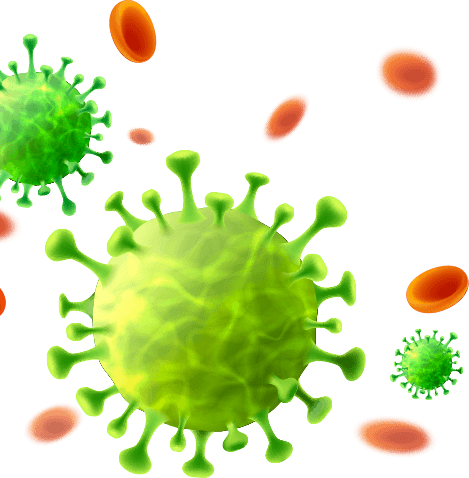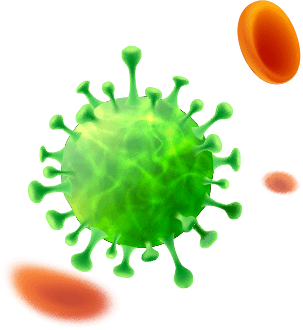- 2750 Quadra Street Victoria, Canada.
- Emergancy Helpline: +44 587 154756
The COVID-19 outbreak has caused markets to collapse and worldwide health systems to become overwhelmed. When there's a global pandemic, it's nice to hear from the steady, transparent and yes even reassuring voice of experts on the front lines.
There's a lot we don't know about the novel coronavirus that's shutting down the world. But we do know this: the sick, the elderly, and the immune-compromised are particularly at risk. If you or a loved one fall into this category, there are some things you can do to help keep COVID-19 at bay.
It has spread so rapidly and to so many countries that the World Health Organization has declared it a pandemic (a term indicating that it has affected a large population, region, country, or continent).
If you do get sick with the flu, your doctor can prescribe an antiviral drug that can reduce the severity of your illness and shorten its duration. There are currently no antiviral drugs available to treat COVID-19.
Some people infected with the virus have no symptoms. When the virus does cause symptoms, common ones include low-grade fever, body aches, coughing, nasal congestion, runny nose, and sore throat.
The COVID-19 outbreak has caused markets to collapse and worldwide health systems to become overwhelmed. When there's a global pandemic, it's nice to hear from the steady, transparent and yes even reassuring voice of experts on the front lines.
There's a lot we don't know about the novel coronavirus that's shutting down the world. But we do know this: the sick, the elderly, and the immune-compromised are particularly at risk. If you or a loved one fall into this category, there are some things you can do to help keep COVID-19 at bay.
It has spread so rapidly and to so many countries that the World Health Organization has declared it a pandemic (a term indicating that it has affected a large population, region, country, or continent).
If you do get sick with the flu, your doctor can prescribe an antiviral drug that can reduce the severity of your illness and shorten its duration. There are currently no antiviral drugs available to treat COVID-19.
Some people infected with the virus have no symptoms. When the virus does cause symptoms, common ones include low-grade fever, body aches, coughing, nasal congestion, runny nose, and sore throat.
The COVID-19 outbreak has caused markets to collapse and worldwide health systems to become overwhelmed. When there's a global pandemic, it's nice to hear from the steady, transparent and yes even reassuring voice of experts on the front lines.
There's a lot we don't know about the novel coronavirus that's shutting down the world. But we do know this: the sick, the elderly, and the immune-compromised are particularly at risk. If you or a loved one fall into this category, there are some things you can do to help keep COVID-19 at bay.
It has spread so rapidly and to so many countries that the World Health Organization has declared it a pandemic (a term indicating that it has affected a large population, region, country, or continent).
If you do get sick with the flu, your doctor can prescribe an antiviral drug that can reduce the severity of your illness and shorten its duration. There are currently no antiviral drugs available to treat COVID-19.
Some people infected with the virus have no symptoms. When the virus does cause symptoms, common ones include low-grade fever, body aches, coughing, nasal congestion, runny nose, and sore throat.
The COVID-19 outbreak has caused markets to collapse and worldwide health systems to become overwhelmed. When there's a global pandemic, it's nice to hear from the steady, transparent and yes even reassuring voice of experts on the front lines.
There's a lot we don't know about the novel coronavirus that's shutting down the world. But we do know this: the sick, the elderly, and the immune-compromised are particularly at risk. If you or a loved one fall into this category, there are some things you can do to help keep COVID-19 at bay.
It has spread so rapidly and to so many countries that the World Health Organization has declared it a pandemic (a term indicating that it has affected a large population, region, country, or continent).
If you do get sick with the flu, your doctor can prescribe an antiviral drug that can reduce the severity of your illness and shorten its duration. There are currently no antiviral drugs available to treat COVID-19.
Some people infected with the virus have no symptoms. When the virus does cause symptoms, common ones include low-grade fever, body aches, coughing, nasal congestion, runny nose, and sore throat.
The COVID-19 outbreak has caused markets to collapse and worldwide health systems to become overwhelmed. When there's a global pandemic, it's nice to hear from the steady, transparent and yes even reassuring voice of experts on the front lines.
There's a lot we don't know about the novel coronavirus that's shutting down the world. But we do know this: the sick, the elderly, and the immune-compromised are particularly at risk. If you or a loved one fall into this category, there are some things you can do to help keep COVID-19 at bay.
It has spread so rapidly and to so many countries that the World Health Organization has declared it a pandemic (a term indicating that it has affected a large population, region, country, or continent).
If you do get sick with the flu, your doctor can prescribe an antiviral drug that can reduce the severity of your illness and shorten its duration. There are currently no antiviral drugs available to treat COVID-19.
Some people infected with the virus have no symptoms. When the virus does cause symptoms, common ones include low-grade fever, body aches, coughing, nasal congestion, runny nose, and sore throat.
Coronaviruses are a large family of viruses. Some cause illness in people, and others, such as canine and feline coronaviruses, only infect animals. Rarely, animal coronaviruses that infect animals have emerged to infect people and can spread between people.
Coronaviruses are a large family of viruses. Some cause illness in people, and others, such as canine and feline coronaviruses, only infect animals. Rarely, animal coronaviruses that infect animals have emerged to infect people and can spread between people.
Coronaviruses are a large family of viruses. Some cause illness in people, and others, such as canine and feline coronaviruses, only infect animals. Rarely, animal coronaviruses that infect animals have emerged to infect people and can spread between people.
Coronaviruses are a large family of viruses. Some cause illness in people, and others, such as canine and feline coronaviruses, only infect animals. Rarely, animal coronaviruses that infect animals have emerged to infect people and can spread between people.
Coronaviruses are a large family of viruses. Some cause illness in people, and others, such as canine and feline coronaviruses, only infect animals. Rarely, animal coronaviruses that infect animals have emerged to infect people and can spread between people.


Coronaviruses are a large family of viruses. Some cause illness in people, and others, such as canine and feline coronaviruses, only infect animals. Rarely, animal coronaviruses that infect animals have emerged to infect people and can spread between people.
Coronaviruses are a large family of viruses. Some cause illness in people, and others, such as canine and feline coronaviruses, only infect animals. Rarely, animal coronaviruses that infect animals have emerged to infect people and can spread between people.
Coronaviruses are a large family of viruses. Some cause illness in people, and others, such as canine and feline coronaviruses, only infect animals. Rarely, animal coronaviruses that infect animals have emerged to infect people and can spread between people.
Coronaviruses are a large family of viruses. Some cause illness in people, and others, such as canine and feline coronaviruses, only infect animals. Rarely, animal coronaviruses that infect animals have emerged to infect people and can spread between people.
Coronaviruses are a large family of viruses. Some cause illness in people, and others, such as canine and feline coronaviruses, only infect animals. Rarely, animal coronaviruses that infect animals have emerged to infect people and can spread between people.
Coronaviruses are a large family of viruses. Some cause illness in people, and others, such as canine and feline coronaviruses, only infect animals. Rarely, animal coronaviruses that infect animals have emerged to infect people and can spread between people.
Coronaviruses are a large family of viruses. Some cause illness in people, and others, such as canine and feline coronaviruses, only infect animals. Rarely, animal coronaviruses that infect animals have emerged to infect people and can spread between people.
Coronaviruses are a large family of viruses. Some cause illness in people, and others, such as canine and feline coronaviruses, only infect animals. Rarely, animal coronaviruses that infect animals have emerged to infect people and can spread between people.
Coronaviruses are a large family of viruses. Some cause illness in people, and others, such as canine and feline coronaviruses, only infect animals. Rarely, animal coronaviruses that infect animals have emerged to infect people and can spread between people.
Coronaviruses are a large family of viruses. Some cause illness in people, and others, such as canine and feline coronaviruses, only infect animals. Rarely, animal coronaviruses that infect animals have emerged to infect people and can spread between people.

